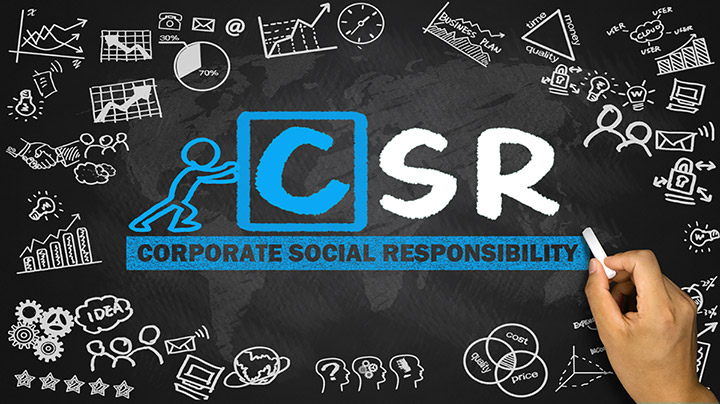The Importance of Corporate Social Responsibility in Public Enterprises

The name says a lot on its own: Corporate Social Responsibility (CSR). Businesses are responsible for helping people, protecting nature, and supporting the economy. An online casino, for example, can follow CSR by ensuring fair play and promoting responsible gambling.
Why CSR Matters in Public Enterprises
Public enterprises serve the people. Private businesses focus on profit, but these groups care about people. CSR helps them gain trust, look good, and grow steadily.
Economic Benefits of CSR
1. Cost Reduction Through Sustainable Practices
CSR has real financial advantages. Sustainable business practices can reduce costs. Energy efficiency and waste reduction help cut expenses in the long run.
2. Attracting Ethical Investors and Customers
Ethical operations attract investors and customers who value responsibility. Many individuals and institutions prefer to support companies with strong CSR commitments. Government support and funding often favor enterprises that prioritize CSR.
Social Impact of CSR
1. Strengthening Communities
CSR helps create stronger communities. Public enterprises can invest in education, healthcare, and employment. Social programs benefit employees and citizens alike.
2. Improving Workplace Culture
Fair work rules make the workplace better. Happy workers stay longer and work harder. Good CSR practices lead to higher job satisfaction.
Environmental Responsibilities
Areas like transport, energy, and factories are what is in need of the public enterprises.. They need to cut pollution and protect the environment.
Green Initiatives and Resource Conservation
Awareness is the first step towards a green planet. We hear people saying save energy, but to save energy we need to produce less and consume less. Companies should use green tech and eco-friendly materials.
Reducing Carbon Footprints
Public companies should use clean energy, save power, and reduce pollution. This helps the planet and also lowers costs in the long run.
Key CSR Strategies for Public Enterprises
1. Transparency and Accountability
Being accountable to the public is essential. Clear reporting on CSR efforts builds credibility. Enterprises should release annual CSR reports. Open communication ensures that stakeholders stay informed.
2. Ethical Business Practices
Fair wages, employee rights, and anti-corruption policies are fundamental. Public enterprises should set an example for private businesses. Ethical standards should guide all decisions.
3. Community Engagement Programs
Investing in communities helps public companies grow. Local businesses must be encouraged and supported. This could be done by funding a community project and helping people with education.
4. Environmental Sustainability Initiatives
Reducing pollution, saving water, and recycling should be priorities. Green energy saves money and helps the planet.
The Role of Government in CSR
Public enterprises operate under government oversight. Policies should promote responsible business. Governments can make rules, offer rewards, and work together to encourage CSR.
Regulations and Legal Frameworks
Laws and regulations set CSR standards. Businesses must follow work rules, environmental laws, and fair practices. Strict enforcement ensures accountability.
Incentives for CSR Practices
Governments can give tax breaks or grants to companies with good CSR programs. Awards for being eco-friendly encourage companies to do better.
Public-Private Partnerships
Collaborating with private companies enhances CSR's impact. Joint projects in infrastructure, education, and health services benefit communities. Partnerships help achieve larger social goals.
Challenges in Implementing CSR
1. Budget Constraints
Public enterprises operate on government funds. Limited budgets can restrict CSR activities. Prioritizing cost-effective and impactful projects is essential.
2. Balancing Profit and Responsibility
Enterprises must maintain financial stability while supporting CSR. Finding the right balance between profitability and responsibility is key.
3. Measuring CSR Success
CSR efforts need proper evaluation. Establishing key performance indicators (KPIs) helps track progress. When you have regular assessment, you can make sure there will be ongoing improvement.
Successful CSR Examples in Public Enterprises
Green Energy Initiatives
Many public utilities invest in renewable energy. Solar and wind projects reduce environmental impact. These efforts also provide long-term cost savings.
Education and Skill Development
Public enterprises often support educational initiatives. Scholarship programs, vocational training, and internships help prepare the workforce.
Healthcare Support
Public transport and utility companies provide health benefits to employees. Some fund hospitals and clinics to improve community health.
Future Trends in CSR for Public Enterprises
Digital Transformation
Technology helps businesses share their CSR work. It saves energy, water, and money while helping the environment.
Increased Stakeholder Expectations
People care about how businesses act. They want companies to help with social and environmental issues, not just make money. Businesses need to be honest and responsible.
Sustainable Development Goals (SDGs)
Some companies claim to be sustainable by manipulating the system and doing short-term result goals. Businesses should match their CSR efforts with bigger goals. Improving life on the planet doesn't happen overnight; it takes time and dedication.
Climate Change Adaptation
Climate change is only getting worse, and unfortunately, this will affect businesses. This is why companies must plan for the future. They should prepare for bad weather and rising sea levels by using clean energy and building safely. This will protect the business and keep communities safe.
Employee Well-Being and Mental Health
CSR initiatives are expanding beyond traditional areas. Public enterprises should prioritize mental health programs, wellness initiatives, and work-life balance policies.
Join PSU Connect on WhatsApp now for quick updates! Whatsapp Channel
Read Also : Dredging Corporation of India Signs MoUs with 16 organisations